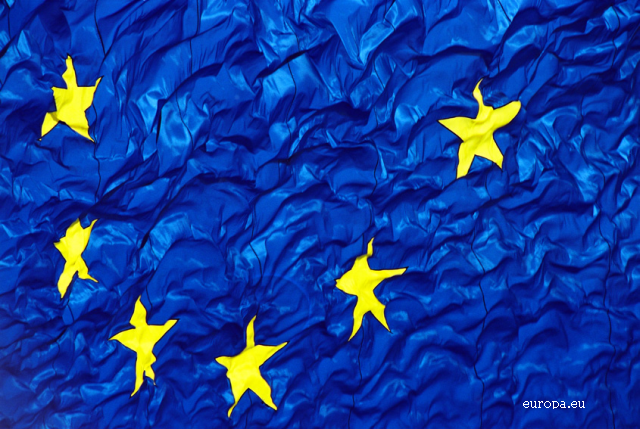Who’s Afraid of Eurosceptics?
Euroscepticism, populism and extremism have gained ground in the European Union.

Corina Cristea, 06.06.2014, 13:07
Euroscepticism, populism and extremism have gained ground in the European Union, as shown by opinion polls and confirmed by the latest European Parliament election of May. The structure of the new Parliament is now dominated by the Group of the European People’s Party and the Progressive Alliance of Socialists and Democrats. The Liberals are the third important group in Parliament, followed by the Greens.
Nevertheless all four parties have reported significant losses as compared to the previous elections. The far left is on the rise, and so is Europe of Freedom and Democracy, a political coalition of European parties, the largest of which is the UK Independence Party. In simple terms, the election results have confirmed the concerns with Europhobic and Eurosceptical parties. Such fears are not ungrounded.
The aforementioned parties are very active and highly critical of what Europe represents today, and seem to share many ideas that “go against the grain”. They are anti-immigrant, oppose the free movement of people and the Schengen area, and argue against the single currency, which they see as the main cause of the current economic crisis in Europe. Finally, some Europhobes go as far as saying the European bloc should be left to meet its downfall.
Political analysts with the Lisbon-based Diario Economico business newspaper say it’s understandable why more and more Europeans find radical and Europhobic movements appealing. The decision makers in Brussels have failed to meet their expectations, ushering in institutional inflexibility, fragmenting European economies and widening the gap between the rich and the poor, the strong and the weak, between governments and those governed. Faced with so many doubts, becoming a sceptic as regards the future of Europe is quite easy. There has been much talk about the campaign for the European Parliament elections being different this time. Political analyst Bogdan Chireac explains:
Bogdan Chireac: “The campaign focused on post-crisis topics. There was no talk about the future of Europe, but rather about immigration, unemployment, jobs, matters of domestic politics that are country-specific. I don’t think Europeans are overall pleased with the result of the elections and how the campaign unfolded”.
What is really surprising about the recent elections is the voter turnout, which is higher than in 2009, political analyst Cristian Parvulescu told us.
Cristian Parvulescu: “Could this be, both in Europe and in Romania, proof that European citizens have mobilised against Europe? If we look at the results in France, yes, we can say that. But were we to take a look at Romania or Belgium, things are more complicated. The Eurosceptic far right has gained clout. Still, the main European political factions will continue to make the calls within the European Parliament”.
In Romania the elections brought little to no mandates to Eurosceptics. For our country the stake was different. Bogdan Chireac gave us more details.
Bogdan Chireac: “The only stake of the election was testing voters’ choices ahead of the presidential elections of November. Our politicians have failed in getting people interested in the European Parliament elections. They simply couldn’t do that. They were too worked up about matters of domestic politics, such as the verbal clashes between president Basescu and Prime Minister Ponta. They were the focal points on the political agenda, so the results speak for themselves. The campaign was split between the supporters and opponents of president Basescu. The biggest winner is the Social Democratic Party, while the losers are the National Liberal Party and the Liberal Democratic Party, since the result obtained by the People’s Movement Party has virtually taken Basescu out of the political equation”.
So far, Romanian officials have held offices of little importance within the European Parliament, such as vice-presidents of committees or delegations. Will the results of the elections bring about any change?
Bogdan Chireac: “I doubt we will see any spectacular change. Just think that Dacian Cilos has so far done very well as European Commissioner for Agriculture and Rural Affairs, not necessarily as a representative of Romania, but as a European official. While this meets Europe’s standards, we should seek other ways to meet our own, and so should all nations who have politicians in high-ranking positions in Brussels. Therefore we should expect little of our politicians in Brussels. They are first and foremost our most vocal critics”.
Romania will be represented by 32 MEPs in the new Parliament. The left-wing ruling coalition, made up of the Social Democratic Party, the National Union for the Progress of Romania and the Conservative Party, has won 16 seats, while the center-right parties, the National Liberal Party and the Liberal Democratic Party, have won six mandates and five mandates respectively. The Democratic Union of Ethnic Hungarians in Romania, a junior member of the ruling coalition, has 2 seats, the same as the People’s Movement Party in opposition. The independent candidate Mircea Diaconu has also surprisingly won a seat.






























